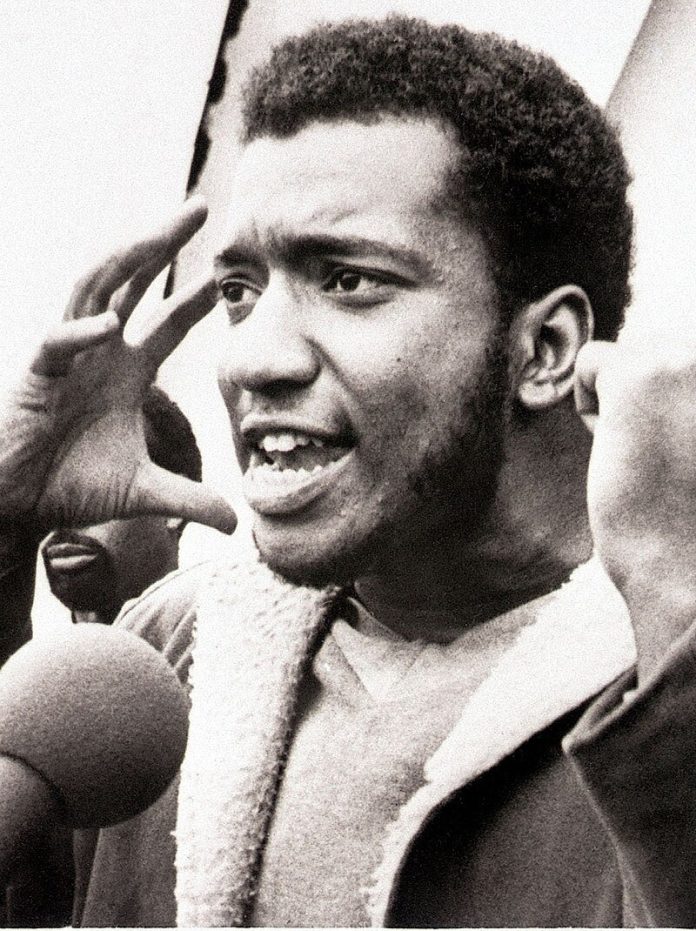Fred Hampton, a prominent African-American activist and leader, remains a symbol of revolutionary fervour and the struggle for racial and economic justice. Born on 30 August 1948, in Summit, Illinois, Hampton’s life was tragically cut short at the age of 21, but his impact on the civil rights movement and his vision for a more equitable society continue to resonate.
Fred Hampton grew up in a working-class family in suburban Chicago. From a young age, he displayed a keen intellect and a passion for social justice. While still a teenager, he became involved in the National Association for the Advancement of Colored People (NAACP), where he quickly rose through the ranks, demonstrating exceptional leadership skills. As chairman of the NAACP’s Youth Council, he successfully campaigned for improved educational resources and recreational facilities for Black students in his community.
Hampton’s activism took a more radical turn when he joined the Black Panther Party (BPP) in 1968. The BPP, founded in 1966 by Huey P. Newton and Bobby Seale, was a revolutionary socialist organisation that sought to combat police brutality and systemic racism while providing community-based social programmes. Hampton’s charisma and organisational prowess quickly made him a key figure in the party.
As deputy chairman of the Illinois chapter of the Black Panther Party, Fred Hampton worked tirelessly to build coalitions across racial and ethnic lines. He believed in the power of unity among marginalised groups, famously coining the term “Rainbow Coalition” to describe his vision of a multiracial alliance fighting for common goals. This coalition included not only Black activists but also Puerto Rican, Mexican-American, and poor white groups, all united against systemic oppression.
Under Hampton’s leadership, the Illinois chapter of the BPP initiated several community programmes, such as free breakfast schemes for children, medical clinics, and educational initiatives. These programmes were designed to address the immediate needs of impoverished communities while simultaneously raising political consciousness.
Hampton’s growing influence and his ability to unite diverse groups made him a target of the Federal Bureau of Investigation (FBI) and local law enforcement. The FBI, under its covert COINTELPRO programme, sought to disrupt and neutralise what it deemed “subversive” organisations, including the Black Panther Party. J. Edgar Hoover, the FBI’s director at the time, famously described the BPP as “the greatest threat to the internal security of the country.”
In the early hours of 4 December 1969, Fred Hampton’s life was brutally ended during a police raid on his apartment in Chicago. The raid, orchestrated by the Chicago Police Department in collaboration with the FBI, was later revealed to have been based on faulty intelligence and driven by a desire to eliminate Hampton as a political threat. Hampton was shot and killed in his bed, along with fellow Panther Mark Clark. Four others in the apartment were wounded, and all surviving occupants were arrested, though charges against them were later dropped.
The circumstances of Hampton’s death sparked outrage and led to widespread condemnation. Investigations revealed that the raid had been heavily militarised and that Hampton had likely been drugged beforehand, rendering him unconscious during the attack. Ballistic evidence suggested that nearly 100 shots were fired by the police, while only one shot was fired by the Panthers.
Fred Hampton’s death was a devastating blow to the Black Panther Party and the broader civil rights movement. However, his legacy endures. Hampton’s vision of a united front against oppression and his commitment to grassroots organising continue to inspire activists today. His life and death serve as a stark reminder of the lengths to which oppressive systems will go to silence dissent, as well as the enduring power of collective struggle.
In recent years, Hampton’s story has been revisited in documentaries, books, and films, ensuring that his contributions to the fight for justice are not forgotten. His words, “You can kill a revolutionary, but you can’t kill the revolution,” remain a powerful testament to his enduring influence. Fred Hampton’s life may have been short, but his impact on the quest for equality and justice is immeasurable.







